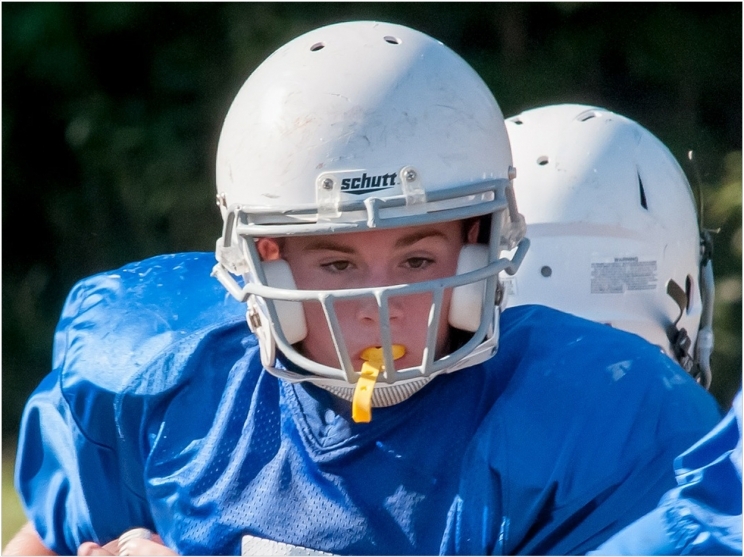
Despite increased implementation of safety practices in youth athletics, only 59% of American children who participate in fall and winter sports such as football and hockey use mouth guards, Delta Dental reports.
“Something as simple as a mouth guard could be the difference between a safe sporting activity and a trip to the emergency room,” said Bill Kohn, DDS, vice president of dental science and policy at the Delta Dental Plans Association. “A conversation with your dentist and a well-fitting mouth guard can help ensure children who play contact sports keep their smiles healthy.”
Delta Dental’s online survey results show that 32% of youth football players wear a mouth guard, along with 24% of basketball players, 16% of soccer players, and 14% of field hockey players. Lacrosse, ice hockey, gymnastics, boxing, and volleyball all saw 11% usage. On the slopes, 10% of those who ski wear mouth guards, while 7% of rugby players use them. In the springtime, 20% of baseball players use a mouth guard.
“The risk of dental injury dramatically increases in contact sports such as football, hockey, basketball, baseball, and soccer,” said John B. Roberson, DMD, an oral and maxillofacial surgeon. “Oral injury can produce an avulsed or dislodged tooth, a fractured tooth, intraoral lacerations, and jaw fractures. These injuries can be prevented by the athlete wearing a mouth guard.”
For example, mouth guards can keep the lips and cheeks from getting lacerated and bruised during impact by separating the soft tissue and the teeth, Roberson reports. Also, mouth guards cushion and distribute the impact of direct frontal blows that might otherwise fracture or dislocate the anterior teeth. They can further prevent the teeth in opposing arches from traumatic contact that could fracture them or damage their supporting structures.
Delta Dental notes that a 10-year study of mouth and jaw injuries found that about 32% of pediatric facial trauma cases occurred during sports activities. Baseball and basketball have the highest numbers of sport-related dental injuries. The company advises dentists to discuss mouth guard options, including ready-made or stock models, mouth-formed “boil and bite” devices, and custom-made pieces, with families who participate in sports.
Related Articles
NYC’s Student Athletes Get Free Custom Mouthguards
Educate Parents About the Importance of Dental Protection
Mouthguards May Improve Athletic Performance in Addition to Protecting Teeth











